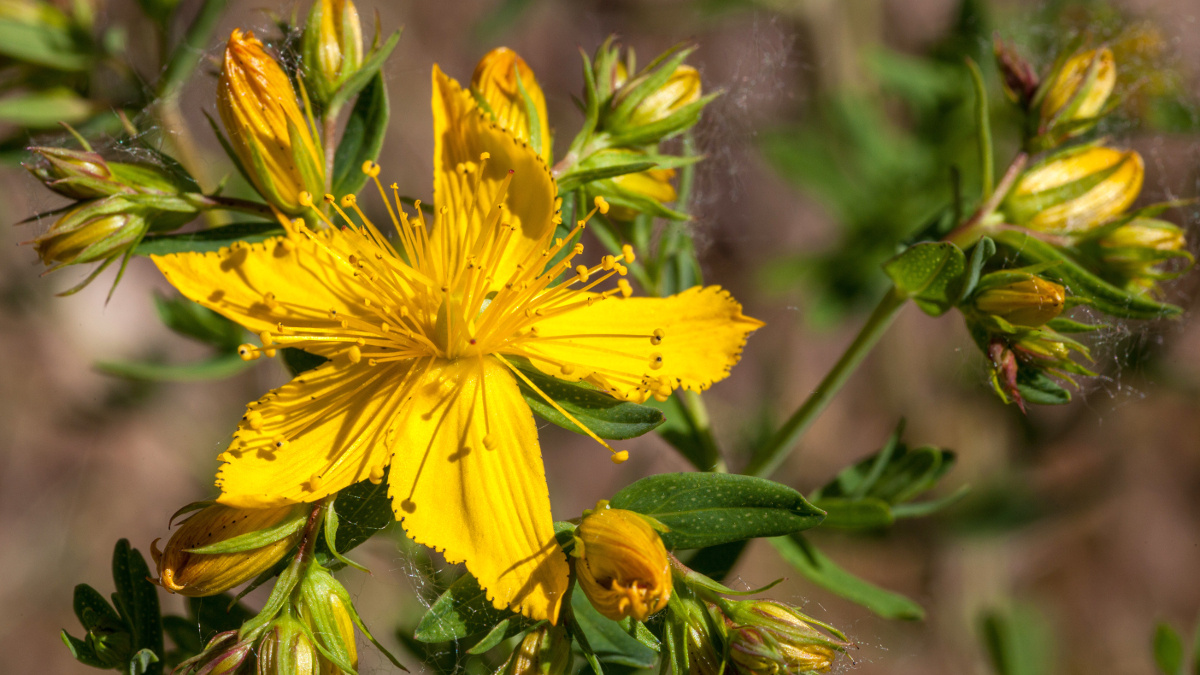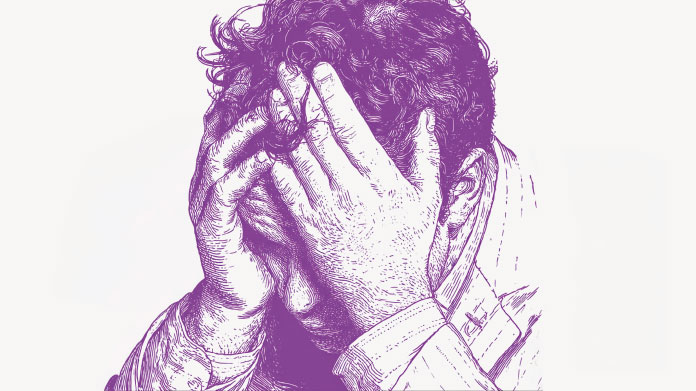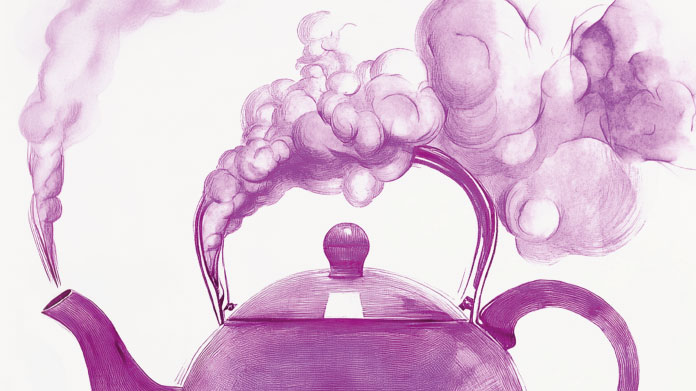St. John’s Wort: how this plant could promote mental well-being
Used for millennia, St. John’s Wort has enjoyed renewed popularity in recent years, primarily for its potential effects on emotional balance and mood. Discover everything you’ve ever wanted to know about St. John’s Wort.

The potential benefits of St. John’s Wort for mental health
St. John’s Wort (Hypericum Perforatum) is a herbaceous perennial, from the Clusiaceae family. It was used in traditional pharmacopoeia to treat insomnia and reduce anxiety. It is considered by some to be the ‘best natural anti-depressant‘ there is.
St. John’s Wort is said to support:
- good emotional balance
- mental and physical well-being ;
- positive mood
- good balance of the nervous system during the menstrual cycle;
- optimal relaxation;
- good quality sleep;
- stimulation of mental capacities;
- strengthening of the body’s defenses...
These health claims, allowed by the EFSA (European Food Safety Authority), are currently being examined by this same organisation.
How St. John’s Wort is thought to act on the ‘happy hormones’
St. John’s Wort is known to contain high levels of hypericin, a natural pigment from the naphtodianthrone family.
For a better understanding of how the plant works, we need to focus on our synapses. A synapsis forms a sort of information channel between two neurons in the brain: one which sends the message and the other which receives it.
The neurotransmitters responsible for transferring this information via synapses include the famous ‘happy hormones’ associated with feelings of pleasure, well-being and other positive emotions.
The problem is that a significant proportion of these neurotransmitters can be instantly recaptured by the ‘sender’ neurons. The more this happens, the less the brain receives the happiness and pleasure information … and the greater the effect on the individual’s mood.
A number of in vivo tests have shown that the hypericin in St. John’s Wort appears to inhibit the recapture of serotonin and noradrenalin (1). The synthetic compounds used in treatments for depression exploit precisely this kind of mechanism.
Choose a St. John’s Wort extract with the right dose of hypericin
According to researchers at the CNRS (Center National de la Recherche Scientifique) and University Hospital of Montpellier, “only a St. John’s Wort extract with a guaranteed content of active principles has demonstrated therapeutic efficacy”(2).
Indeed the concentration of active ingredients in individual plants can vary considerably depending on the soil, growing conditions, etc. It’s therefore important to check the hypericin content of your supplement, which should ideally be in the region of 0.3% (try, for example, the excellent product St John's Wort Extract). (4)
St. John’s Wort: a few contraindications
As with many plants used in phytotherapy, St. John’s Wort can sometimes interact with other medications and is thus contraindicated in certain cases. Always check with your doctor before taking St. John’s Wort.
St. John’s Wort may affect the efficacy of drug treatments in the following cases:
- transplant patients;
- oral contraception;
- anticoagulant treatment;
- AIDs patients;
- Hepatitis C patients;
- epilepsy;
- hypertension;
- heart failure;
- and asthma (5).
References
- Müldner H, Zöller M. [Antidepressive effect of a Hypericum extract standardized to an active hypericine complex. Biochemical and clinical studies] Arzneimittel-forschung. 1984 ;34(8):918-920.
- https://www.researchgate.net/profile/Sylvie_Rapior/publication/259474999_Le_Millepertuis_ou_St_John's_Wort_Une_indication_therapeutique_en_France_-_De_nombreux_risques_d'interactions_avec_les_medicaments/links/00b7d52c0593c9f0e6000000/Le-Millepertuis-ou-St-Johns-Wort-Une-indication-therapeutique-en-France-De-nombreux-risques-dinteractions-avec-les-medicaments.pdf
- Linde K, Berner MM, Kriston L. St John’s wort for major depression. Cochrane Database of Systematic Reviews 2008, Issue 4. Art. No., https://serval.unil.ch/resource/serval:BIB_97D9CEAA4408.P001/REF.pdf
- KECK, Martin E, et al. Le traitement des troubles anxieux : 1ère partie : Trouble panique, agoraphobie, anxiété généralisée, phobie sociale, phobies spécifiques. Swiss Medical Forum, 2011, vol. 11, no. 34, p. 558-566, http://archive-ouverte.unige.ch/unige:32699
- Revue Prescrire, 2004, 24 (250) : 362-369.
Keywords
5 Days
great products and prices
great products and prices
Marie
11 Days
Easy to navigate site
Easy to navigate site, had what I was searching for, good price. easy order-check out
James Tucker
17 Days
My skin is clearing up nicely!
Pretty good for my skin so far.
Christian
19 Days
The new packaging is excellent
The new packaging is excellent - finally! No more squashed boxes and torn envelopes.
GORAN
20 Days
Great Product
Great Product
Larry Garrett
25 Days
Quick shipping
Quick shipping; good price. No issues!
Mary McCarty
26 Days
Thr product is very good and is helping…
Thr product is very good and is helping me on my health. Then is always on time
LUGO Luz
29 Days
Buying was fine
Buying was fine. I had problems with the website not recognizing my login info, and had to call to get it fixed. Other than that, everything was good.
David S. Clark
29 Days
Your super maca and super ginseng are…phenomenal
Your super maca and super ginseng are phenomenal supplements that compliment each other when taking them together. Fantastic feeling of well-being and lots of mid day energy without the crash.
Keith Mason
32 Days
I have had amazing results with every…
I have had amazing results with every supplement I've purchased. I am extremely satisfied with this company
kirstin Torres
32 Days
Fine products
Fine products . They are on the leading edge of online supplements. The only issue -so far-is they sometime run out of subscription items.
Jason Argos
34 Days
The ordering process is very user…
The ordering process is very user friendly and the products always come in a timely manner.
CARTER Rhonda
35 Days
The price for Dr
The price for Dr. Pero's AC-11 is reasonable and in line with his views. (my former colleague). Keep it pure.
CAMPBELL Clayton
38 Days
Right on every time.
Right on every time.
Arthur Nicholas
41 Days
They are cheaper than everyone else and…
They are cheaper than everyone else and the shipping was fast. Great company.
Patricia Adams




